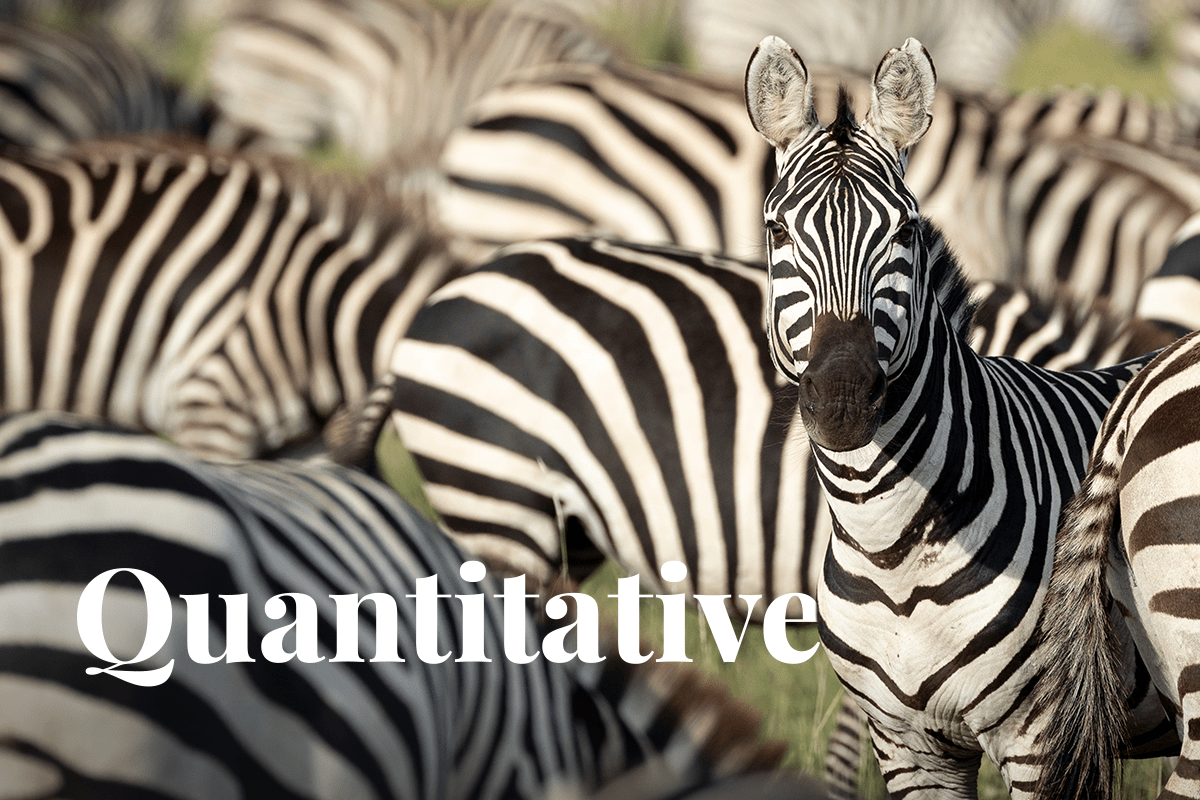The rate of biodiversity loss and ecosystem degradation is at its highest in history, and businesses and financial institutions are taking notice. An estimated $44 trillion of economic value generation, more than half of the world's GDP, is moderately or highly dependent on nature. Hence the need for corporates and financial institutions to take a credible, quantitative approach to understand their impact on nature. In this article, we'll explore the importance of biodiversity reporting and how measuring the value of nature can help companies make better decisions and support a shift towards nature-positive outcomes.
 Herd of zebra in the Serengeti National Park, Africa.
Herd of zebra in the Serengeti National Park, Africa.
The blind spot in corporate sustainability
While initiatives such as the Task Force on Climate-Related Disclosures (TCFD) helped create common metrics and reporting standards concerning climate instability, progress has been slower on nature. This has led to a lack of focus by businesses and clarity for investors. For example, under 20% of S&P 500 companies committed to protecting biodiversity and natural capital, according to S&P's 2021 Corporate Sustainability Assessment.
The Taskforce on Nature-related Financial Disclosures (TNFD)
The TNFD was established to help create a risk management and disclosure framework for organisations to report and act on evolving nature-related risks. The ultimate aim is to support a shift in global financial flows away from nature-negative outcomes and towards nature-positive outcomes.
The TNFD, consisting of 34 senior executives representing financial institutions, corporates, and market service providers with $19.4 trillion in assets, is testing and refining its framework before publishing its final proposals in September of this year. Version 0.3 of its beta framework was released for market consultation in November of last year, with v.04 scheduled for this March. Its potential to change this space is significant.
Measure your carbon footprint
The nature risk profile
As part of the process of innovation, S&P Global Sustainable1 launched a pilot programme with the UN Environment Programme World Conservation Monitoring Centre (UNEP-WCMC). The pilot programme focuses on supporting global efforts to accelerate a shift of capital towards nature-positive outcomes through the universal lens of the TNFD framework. It delivered its final report in January, announcing the Nature Risk Profile, a new methodology for analysing companies' impacts and dependencies on nature.
The new methodology outlines metrics and data enabling companies and investors to identify and quantify nature-related exposure. It covers several key areas, including risks from companies' biodiversity impacts, biodiversity dependencies, and proximity to biodiverse areas.
 The first spring buds.
The first spring buds.
The future of biodiversity reporting
The success in creating regulatory frameworks for carbon reporting will likely feed the momentum for similar frameworks in the field of biodiversity, laying some of the groundwork for putting climate change and nature at the heart of a clear and workable system for financial reporting.
Find out what is biodiversity offsetting
Companies must take a quantitative approach to nature-related risks and opportunities to drive innovation and support a shift towards nature-positive outcomes. By measuring the value of nature to business, companies can begin to evaluate correctly, and when they do that, they can make better decisions as businesses and investors.
 Aerial view of a fruit trees plantation.
Aerial view of a fruit trees plantation.
The importance of biodiversity reporting
The importance of biodiversity reporting is becoming increasingly clear, and businesses and financial institutions are starting to take notice. Companies can drive innovation and support a shift towards nature-positive outcomes by taking a quantitative approach to nature-related risks and opportunities. The TNFD's framework and the new Nature Risk Profile developed by S&P Global Sustainable1 are essential steps towards this goal and should be closely watched by businesses and investors alike.
At DGB Group, we believe that investment in nature-based solutions is the optimal path to protect and restore nature. Businesses, investors, and individuals can choose among our solutions and support nature in the most accessible and transparent way. You can make a difference by reporting your impact on biodiversity and compensating for such impact.
Find out more about reporting and compensating for your impact on biodiversity





